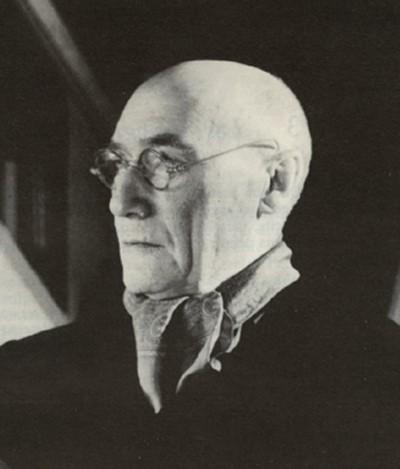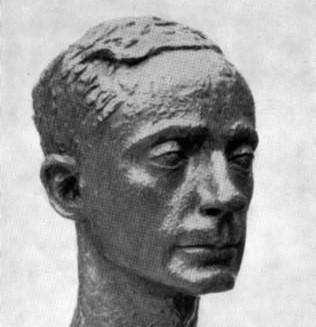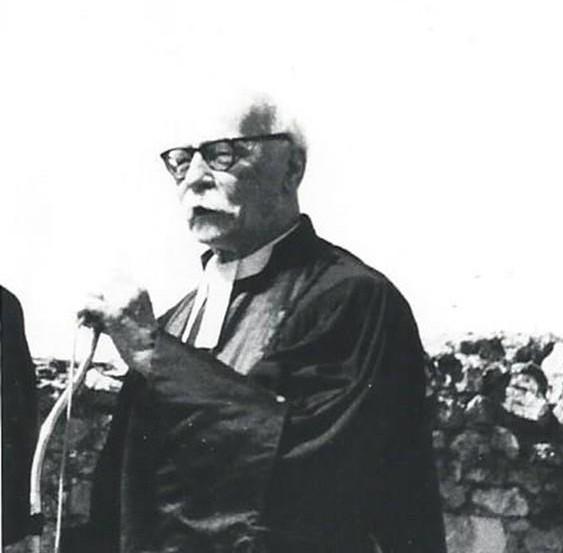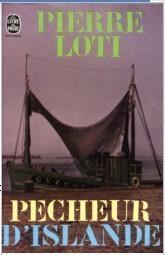Pierre Loti (1850-1923)
Pierre Loti, whose real name was Julien Viaud, was a naval officer and a writer. His mother was a faithful follower of the reformed faith and she saw to it that her son was brought up with the same beliefs. Indeed, Pierre Loti always held onto his faith. He lived a full life, travelling all over the world and was lucky enough to have his literary works widely recognized before his death.
In the house where he was born in Rochefort, which has now become a local museum, we can see some of his personal possessions. These enable us to relive his adventures and dreams.
He spent his youth in the provinces
Julien Viaud, (whose nom de plume from 1881 onwards was Pierre Loti), was born in Rochefort in Charente on 14th January 1850. His father, Théodore Viaud, became a protestant shortly before his marriage.
His mother, Nadine Texier, came from a family which was deeply rooted in Protestantism and its history. Julien’s childhood was impregnated with terrible stories about the religious persecution of his forbears after the Revocation of the Edict : stories which left their mark on him.
Julien Viaud had an austere upbringing : he attended a protestant school, took walks in the sleepy neighbourhood, visited his grandmother in the Ile d’Oleron and read the Bible every day with his family. At the age of 10 he wanted to be a pastor.
However, his imagination was also stirred by an ardent desire to go on adventures in distant countries. This was due to the presence of the sea nearby, the wild dreams of his brother, who was 15 years older than him and the narratives of those who returned from the colonies. « In my childhood that single word « colonies » would conjure up for me a whole world which was both unsettling and magical ; for me, at that time I could see in my mind’s eye all those distant hot countries with their palm trees, their enormous flowers, their wild animals, their adventures… ».
Later, his brother died in the Gulf of Bengal and the family had financial difficulties because his father had been mistakenly charged with theft. So Julien had to come to Paris in 1866 in order to prepare the entry exam for the Ecole Navale and was confirmed at the temple de l’Oratoire. He was admitted to the Ecole Navale in 1867 and in 1869 he set off for his first trip to the Mediterranean.
Julien Viaud’s naval career had begun, his distant journeys too. He started to write articles which he sent back to France, illustrated by remarkable drawings. He also had ideas for various novels, but these were not written in their definitive form until later.
He published his first novel Aziyadé, anonymously in 1879. It is the rather unlikely romantic story of a naval officer (probably himself !) and a beautiful Turkish odalisk – this story is especially remarkable for the fact that it is the first sign of Pierre Loti’s fascination for Turkey. Although this novel achieved little success, Mariage de Loti, published this time under the nom de plume Pierre Loti in 1880, was widely recognized.
Loti as a writer
Madame Juliette Adam, who was the editor of La Nouvelle Revue, enabled him to start his literary career by giving him access to the literary salons of Paris.
His naval career as lieutenant was also making progress ; on the one hand he would leave for distant countries such as Tahiti, the Far East : Tonkin, Saigon, Formosa, Japan and on the other hand he would be posted to Rochefort, which he found boring. These periods at home were brightened up by the decoration of his home in an eccentric way, using exotic souvenirs from his distant voyages.
However, it was his native Charente and Brittany which were to inspire his most famous works : Mon Frère Yves (1883) and Pêcheur d’Islande (1886) – amoving story of love anddeath, which proved very successful. In Madame Chrysanthème, published in 1887, Nagasaki, in Japan, provided the inspiration he needed to write the novel ; Puccini made it into the opera Madame Butterfly in 1904.
In 1886 he married Blanche Franc de Ferrière in the temple in Chartrons in Bordeaux ; she was to prove a modest and submissive wife.
In 1890, he published Le Roman d’un Enfant, which was a somewhat sentimental narrative of his sad and lonely childhood, dominated by his mother, an imposing and influential personality.
Loti was elected to the Académie Française in 1891, to the chair of Octave Feuillet. In fact, he was the youngest member in France, due to the plot against Zola led by Anatole France and some well-known society women
At the beginning of 1892, Loti went for a period of time to Hendaye, in command of the Javelot, a somewhat insignificant gunboat stationed at the entrance of Bidassoa. Here he was delighted to discover the Basque country, which inspired Ramuntcho (published in 1896), the story of a chaste and pious young shepherd.
In 1894, Loti, who was searching for a real religious experience, organized a trip to the Holy Land, but he returned from it bitter and disappointed. After having spent a night at the Garden of Olives, he wrote “nobody sees me, nobody listens to me, nobody answers my questions”.
In 1898, Loti wrote Judith Renaudin : a play about one of his heroic ancestors which had decided to escape to the Netherlands with all her family at the time of the Revocation of the Edict of Nantes. Indeed, in his mother’s family, the memory had been kept very much alive of this exemplary woman who was so devoted to her reformed faith. However, when this sad story was presented to the public, the history of poor little Reformed France had already been absorbed into the republican legend, due to the influence of the historian Jules Michelet (1798-1864). It was fairly successful, though, when it was played in November 1898 at the Théâtre Antoine.
His last journeys and literary works
In 1900, he left for almost 2 years in the Far East, aboard the Redoutable, then later he went to Turkey and Egypt. All this travelling gave inspiration to narratives and descriptions of the various places he had seen : Les derniers jours de Pékin, Vers Ispahan, La mort de Pheilae and the beautiful story of his discovery of Angkor, Le Pèlerin d’Angkor, which he wrote in 1901 and published in 1912.
Both before and after the 1914-1918 war, Loti was devoted to one great cause, the emancipation of Turkey ; this earned him many enemies, however. He retired in 1910 but asked to be called up in 1914 and was appointed liaison officer in the service of Général Gallieni. Over 4 years, he published war reports and several stories : La Hyène enragé, l’Horreur allemande, works containing official Allied propaganda.
He obtained the “order of the army” in 1918 and was awarded the distinguished Grand-Croix (the highest rank) of the Légion d’Honneur in 1922.
When he finally retired, he went to live in Hendaye, where he died on10th June 1923. He was given a national funeral in the île d’Oléron, which is where he had wanted to be buried. The ceremony was conducted by the pastor Marc Boegner.
To conclude, Pierre Loti had a rather paradoxical personality : on the one hand he never forgot his provincial origins and was for a long time in search of spiritual fulfilment. But on the other hand he was dazzled by the glittering world of fame and money. Similarly, his work can also be seen from two angles : the semi autobiographical, slightly sentimental old-fashioned stories are in contradiction with the tales of a man whose passion was travelling all over the world.
His main works
- Aziyadé (1879),
- Le mariage de Loti (1180),
- Mon frère Yves (1883),
- Pêcheur d’Islande (1886),
- Madame Chrysanthème (1887),
- Le roman d’un enfant (1890),
- Ramuntcho (1887),
- Le livre de la pitié (1891),
- Fantôme d’Orient (1901),
- Les derniers jours de Pékin (1902),
- Les Désenchantées (1906),
- La mort de Philae (1909),
- Le pèlerin d’Angkor (1912),
- Prime Jeunesse (1912).
Bibliography
- Books
- BLANCH Lesley, Pierre Loti, Éditions du Rocher, Monaco, 2007
- LE TARGAT François, A la recherche de Pierre Loti, Seghers, Paris, 1976
- QUELLA-VILLEGER Alain, Pierre Loti, l’incompris, Presses de la Renaissance, Breteuil sur Iton, 1986
- Articles
- "Pierre Loti", Bulletin de la SHPF, Paris
Associated notes
-

Edmond Jeanneret (1914-1990)
Edmond Jeanneret was a pastor in the Reformed Church of Neuchâtel and particularly ministered in Leysin and Bôle. He was a theologian, a reader of Karl Barth and Dietrich Bonhoeffer,... -

André Gide (1869-1951)
André Gide was one of the most well-known writers of the first half of the XXth century. He was born into a protestant family and was brought up in an... -

Edmond-Henri Crisinel (1897-1948)
Edmond-Henri Crisinel was Swiss and one of the influential chroniclers for the daily paper la Revue de Lausanne between the Wars. He was a faithful, close friend of many writers,... -

Marc Boegner (1881-1970)
Marc Boegner was a pastor with outstanding charisma, and a prominent figure in contemporary French Protestantism. He also acknowledged its various tendencies, and very early accepted big responsibilities. During the...


